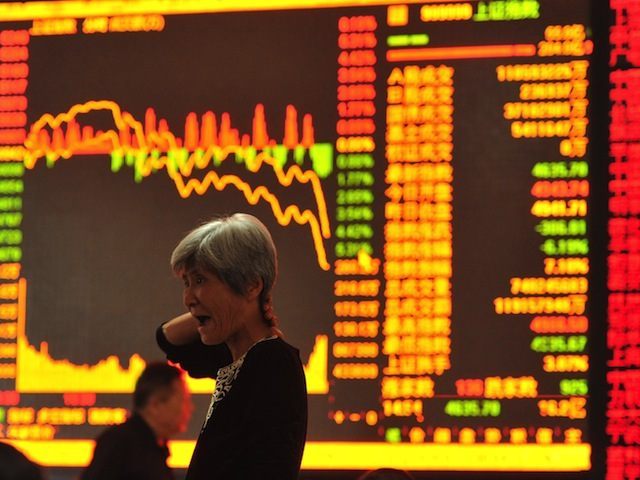Despite the Chinese communist government’s efforts to hide the severity of the “Black Tuesday” stock crash by indefinitely suspending trading in over a quarter of the nation’s weakest stocks, the Shanghai B Share Index suffered a 9.1 percent loss, while the Shenzhen Exchange plunged 5.8%.
With retail customers accounting for 85 percent of Chinese stock trading, there are reports in social media that a number of China’s “equity citizens,” who have suffered $2.9 trillion in losses over the last three weeks, are now committing suicide.
China Premier Li Keqiang posted comments on the government’s website before the Tuesday market opening stating that China had the confidence and ability to deal with challenges faced by its economy.
Li’s reassuring statement was backed up with a report by the official Shanghai Securities News before the markets opened on Tuesday that China’s major insurance firms on Monday had plowed tens of billions of dollars into blue-chip exchange-traded funds and large capitalized stocks. China Life Insurance disclosed that it had purchased $1.6 billion of index funds as part of a nationwide stock “buying group” composed of 115 state-owned financial institutions.
But following Monday’s pattern of government-sponsored buying at the opening causing stocks to leap to their highs, the markets sold off all day and closed at their lows.
The crash would have been epic, but suspensions in trading were called in what appeared to be the weakest 702 of the roughly 2,800 firms listed on China’s main Shanghai and Shenzhen stock exchanges. Officials said the “temporary suspensions” were linked to restructuring, planned share placements or the pending release of a “significant matter.” But they also acknowledged that the ten-day suspensions can be extended for three months.
The market crash has fed doubts about the effectiveness of $200 billion in credit and price support measures unleashed by Beijing’s communist leadership to halt a waterfall in stock prices that have seen a 31 percent decline in major indexes since June, and a worse price drop for the average stock. With Tuesday’s painful loss, China’s stock crash has erased about $3.4 trillion of China’s wealth.
Unlike U.S. stock markets, where 75 percent of trading is by institutions, domestic retail customers account for 85 percent of China trading and have suffered immense losses.
According to the Financial Times, “State media cheerleading for the stock market played to patriotic sentiment, arguing that the rally was an endorsement of (President) Xi’s economic policies.” But with prices crashing and social media full of viral panic, “authorities arrested a man who allegedly spread rumors online about suicides in Beijing’s financial district in response to the stock market rout.”
Communist Party leaders President Xi Jinping and Premier Li Keqiang shaped the nation’s “Silk Road” reforms around a late 2013 pledge to let market forces play a “decisive role” in the economy by having equity markets provide a bigger share of corporate financing.
The Economist referred to the comments as “waving a red cape in front of a bull.” Millions of unsophisticated small investors patriotically bought billions of dollars of Chinese stocks, based on the public’s belief that the government was fully committed to fostering a stock boom.
The initial 150 percent straight-up move in prices through June 12 reinforced the public’s confidence in the “Party” and the “Leadership”. But the severity of the stock market crash and the government’s inability to stabilize the situation has now become a huge threat to the supposedly all-powerful China Communist Party.

COMMENTS
Please let us know if you're having issues with commenting.